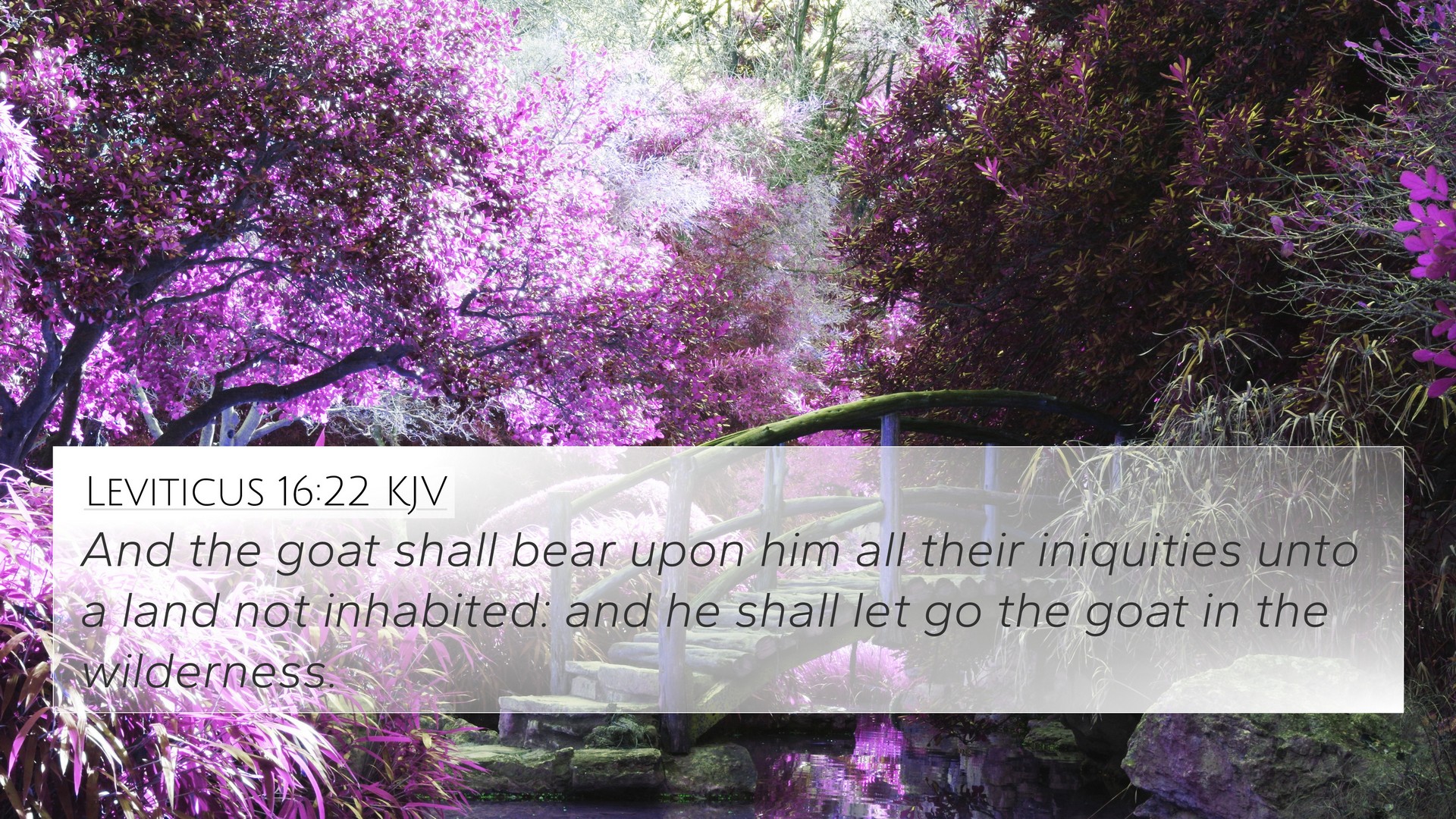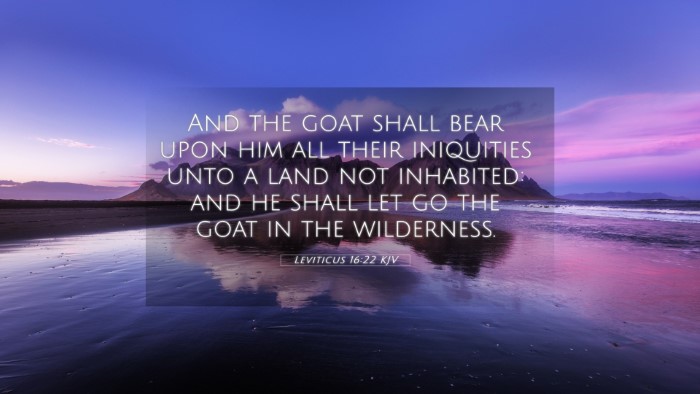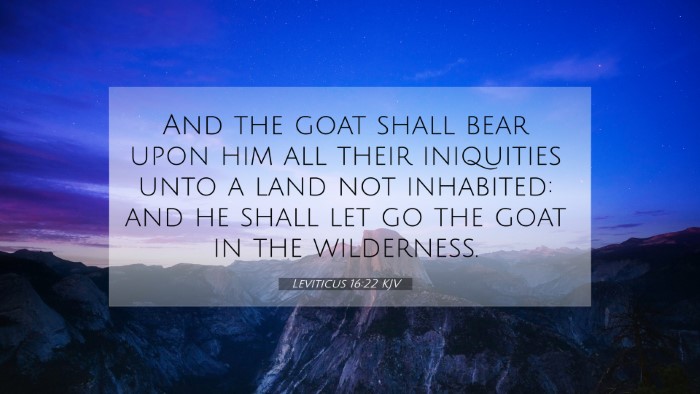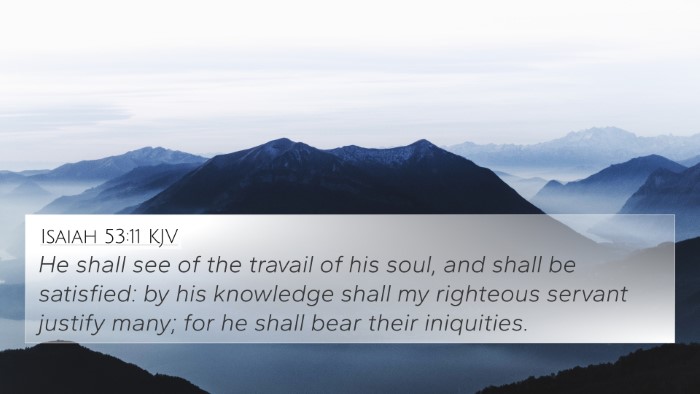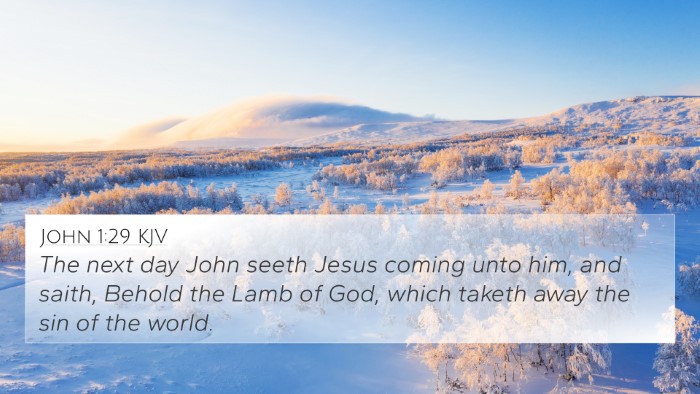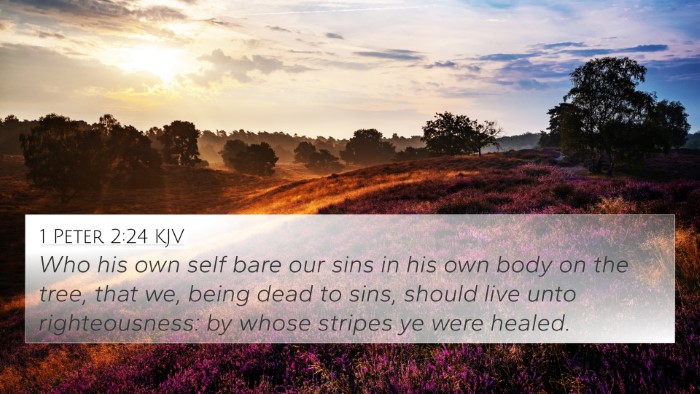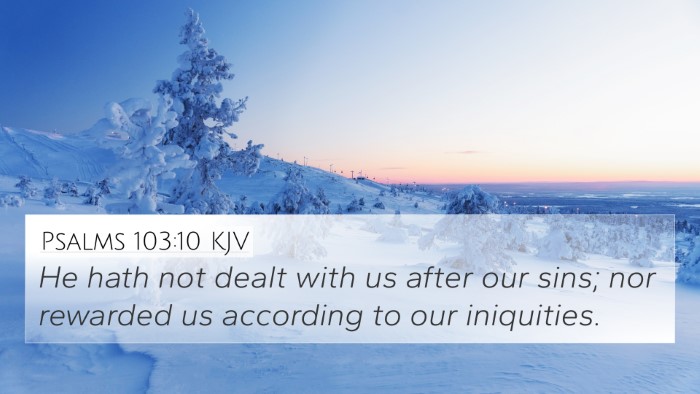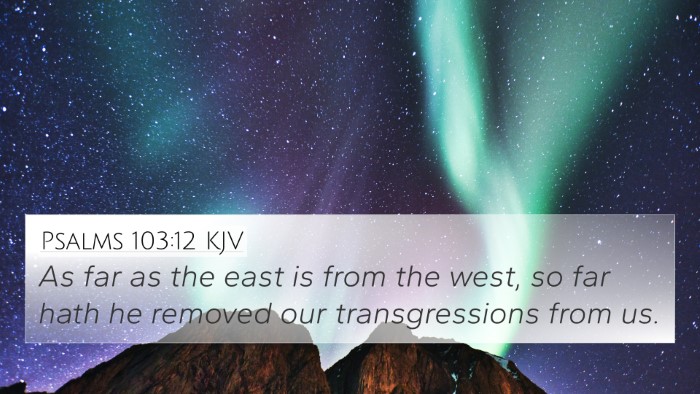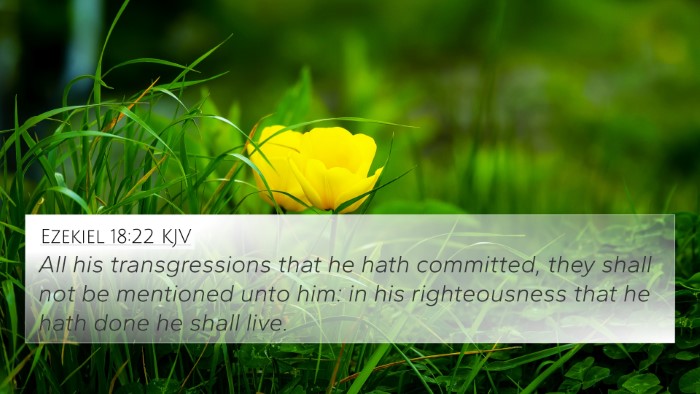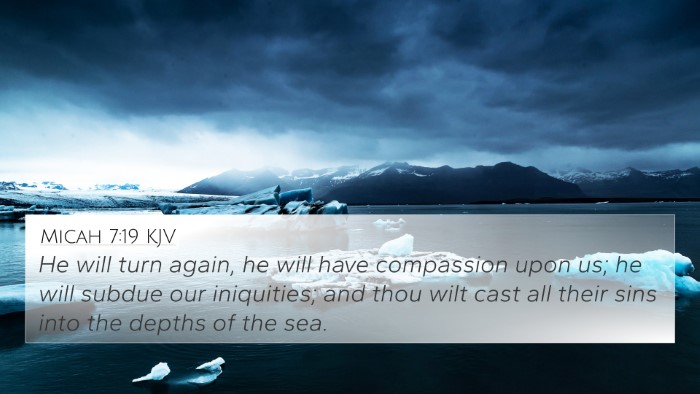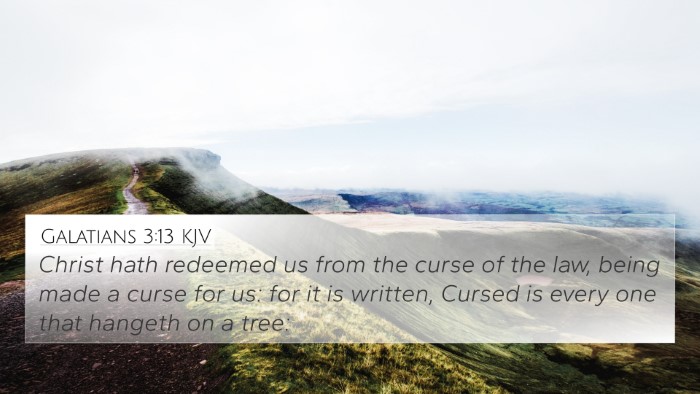Understanding Leviticus 16:22
Bible Verse: “And the goat shall bear upon him all their iniquities unto a land not inhabited: and he shall let go the goat in the wilderness.” (Leviticus 16:22)
Summary of Meaning
Leviticus 16:22 speaks about the Day of Atonement, a significant event in the Israelite religious calendar. This verse describes the ritual involving the scapegoat, which symbolically carries the sins of the people away into the wilderness. This ancient practice illustrates profound theological truths regarding sin, atonement, and God's mercy.
Theological Insights
According to public domain commentaries:
- Matthew Henry: Emphasizes that the scapegoat represents how God removes the guilt of sin from His people. The wilderness symbolizes separation from God’s presence, indicating that sin is banished far from His sight.
- Albert Barnes: Details the symbolism involved in the ritual, noting that the transfer of sin to the goat serves to indicate divine forgiveness and guilt removal. The goat’s destination underscores the complete removal of sin from the community.
- Adam Clarke: Highlights the significance of the wilderness as a desolate place, reinforcing the idea that sin leads one away from God. Clarke also addresses the importance of this ritual in foreshadowing Christ's ultimate sacrifice for humanity.
Cross-References
This verse is connected with several other biblical passages that illuminate its themes:
- Isaiah 53:6 - "All we like sheep have gone astray; we have turned every one to his own way; and the Lord hath laid on him the iniquity of us all."
- Hebrews 9:28 - "So Christ was once offered to bear the sins of many; and unto them that look for him shall he appear the second time without sin unto salvation."
- Psalms 103:12 - "As far as the east is from the west, so far hath he removed our transgressions from us."
- Romans 8:1 - "There is therefore now no condemnation to them which are in Christ Jesus, who walk not after the flesh, but after the Spirit."
- John 1:29 - "The next day John seeth Jesus coming unto him, and saith, Behold the Lamb of God, which taketh away the sin of the world."
- 1 Peter 2:24 - "Who his own self bare our sins in his own body on the tree, that we, being dead to sins, should live unto righteousness: by whose stripes ye were healed."
- Leviticus 4:20 - "And he shall do with the bullock as he did with the bullock for a sin offering, so shall he do with this: and the priest shall make an atonement for them, and it shall be forgiven them."
Thematic Connections
The themes of atonement, guilt, and redemption are prevalent in many scriptures surrounding this verse:
- Tools for Bible Cross-Referencing: This verse provides a robust example for those looking to study atonement in the Bible.
- Bible Concordance: Utilizing a concordance can help trace similar thematic elements found throughout scriptures related to atonement.
- Bible Cross-Reference Guide: Equip yourself with a guide to connect various verses discussing the concept of sacrifice and forgiveness.
Application and Reflection
Understanding Leviticus 16:22 within its broader scriptural context allows for deep reflection on the nature of sin and God's provision for forgiveness. The imagery of the scapegoat conveys a powerful message: while sin separates humanity from God, His mercy works to ensure that believers can experience reconciliation.
Conclusion
Leviticus 16:22 not only serves as a standalone verse illustrating the ritual practices of ancient Israel but also bridges connections to the New Testament, culminating in the understanding that Jesus Christ fulfills the role of the ultimate scapegoat. His sacrifice ensures that sin, once placed upon Him, has been borne away, solidifying the Christian belief in redemption.
Further Study
For those looking to delve deeper, consider studying the following:
- How the rite of atonement in Leviticus informs our understanding of New Testament theology.
- The role of sacrifice throughout the Bible, focusing on key passages in both the Old and New Testaments.
- Exploring how themes of guilt and forgiveness echo throughout the writings of the apostles.
